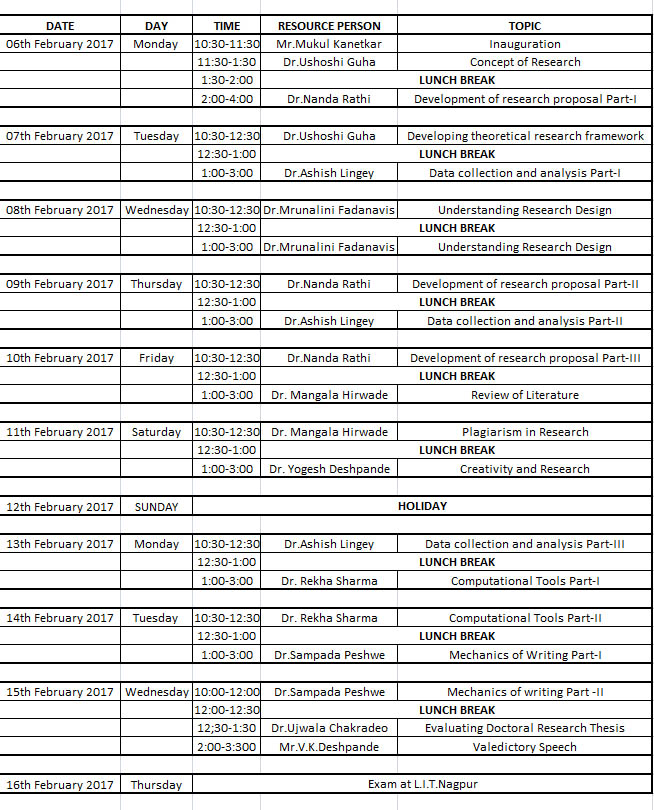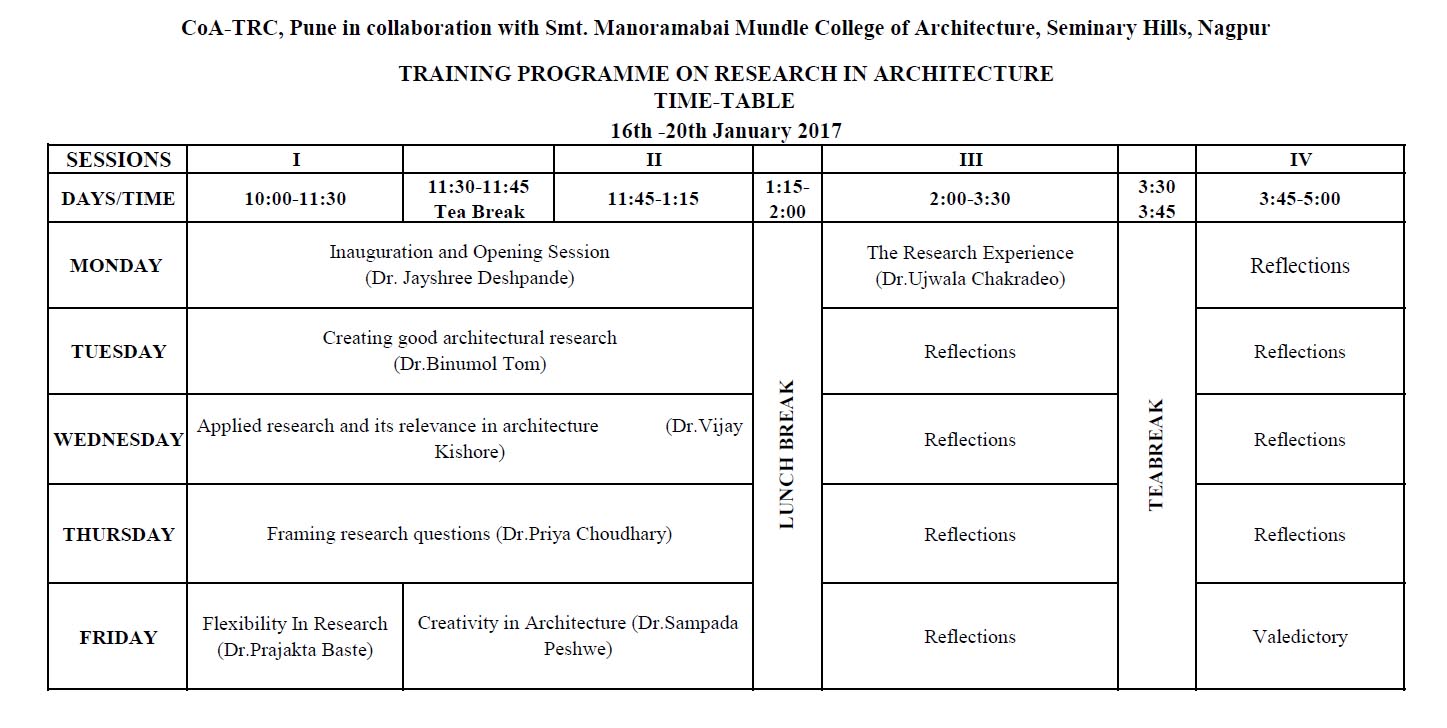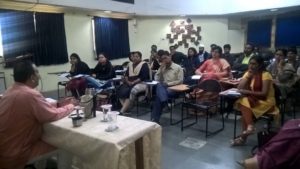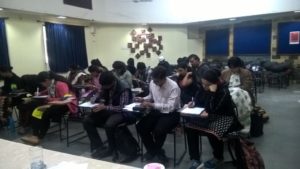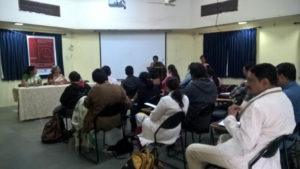Workshop on Research Methodology
Date : 6th to 16th February 2017
– Sections taken by Experts
- Ushoshi Guha: Meaning and objectives of research; types of research, applied vs fundamental, analytical vs descriptive, qualitative vs quantitative, conceptual vs empirical; research process ( 4 hours)
- Mrunalini Fadnavis : Research design, importance of formulation of the research problem. Developing a theoretical framework, conceptualizing research design and stages involved in designing. ( 4 hours )
- Dr. Mangala Hirwade:
- Literature review, its importance in problem definition.
- Use of internet, web browsing, issues regarding organizations, plagiarism
- Ethical issues: The concept of seeking consent, incorrect reporting ( 4 hours )
- Dr. Rekha Sharma : MS Excel; Data handling in excel- The excel worksheet, data entry on worksheet, some important editing features of Excel; Calculations on the worksheet; Editing data using Excel form, Array function; Excel charts: Contruction of column/Bar charts, Histograms, pie charts, line charts, scatter plots etc. Descriptive statistics using Excel, Statistical analysis with software tools. ( 4 hours )
- Dr. Nanda Rathi: Content of research proposal, oreamble/introduction, the problem, objectives of study, hypothesis to be tested etc. Pilot study of the problem; language of reports, bibliography, referencing and footnotes. ( 4 hours )
- Dr. Ashish Lingey :
- Primary Data: Designing questionnaires and schedules, Checking consistency, reliability and validity of data. Secondary Data: Major sources, journals, monographs, government publications etc. Research problem statements.
- Analysis: Classification, presentation, tabulation of data; graphical and diagrammatical representation of data; concept of measures of central tendency and dispersion-Mean, mode, median, variances, standard deviation, mean deviation and standard error./li>
- Various sampling techniques, need for sampling, sample size determination, simple random sampling, cluster sampling, stratified sampling.
- Hypothesis testing, Type-1 and type-2 errors; ‘p’ value, test for mean and variance, correlation and regression, chi-square test.( 6 hours )
- Dr. Sampada Peshwe:
- Spelling: consistency, word division, foreign words;
- Punctuation: The prupose of punctuation, commas, colon, hyphens, slashes
- Italics(underlining): foreign works in an English text, emphasis
- Names of persons: First and subsequent use of names, titles of persons etc.
- Title of workds in the research thesis/papers, capitalization, exception;
- Quotations: Use of quotations, ellipsis, punctuation with quotations.
- Numbers: Arabic numerals, dates, roman numerals etc;
- Review: Reporting on the modules taught/its presentation and discussion ( 4 hours)

